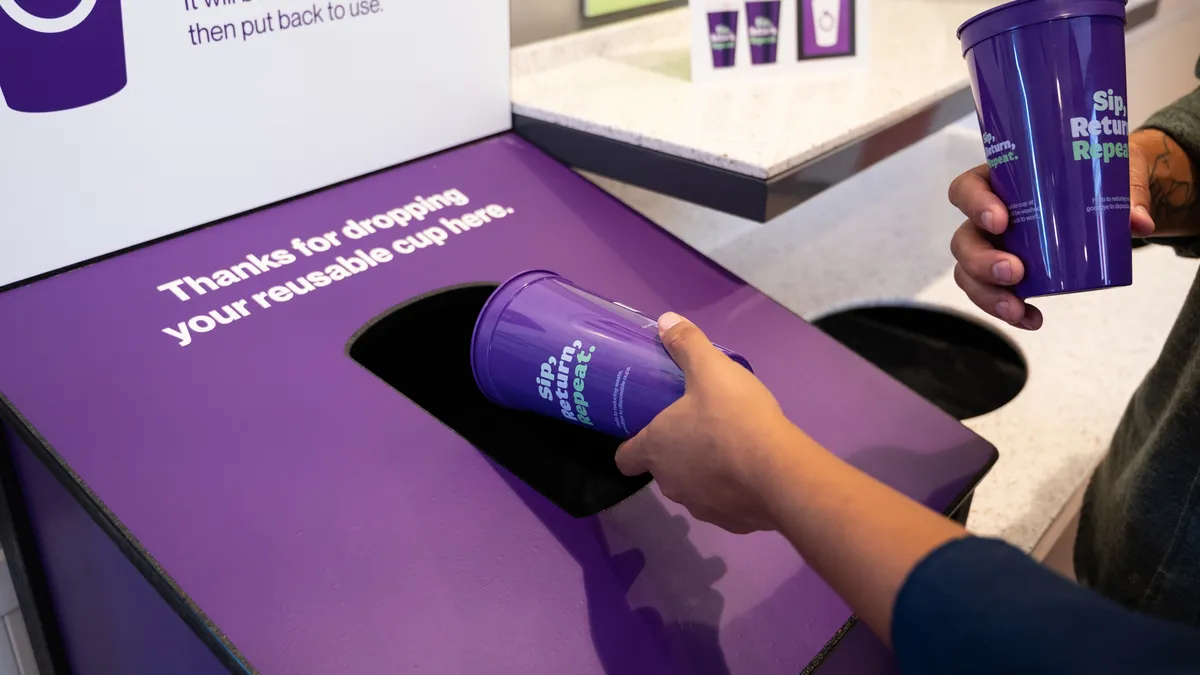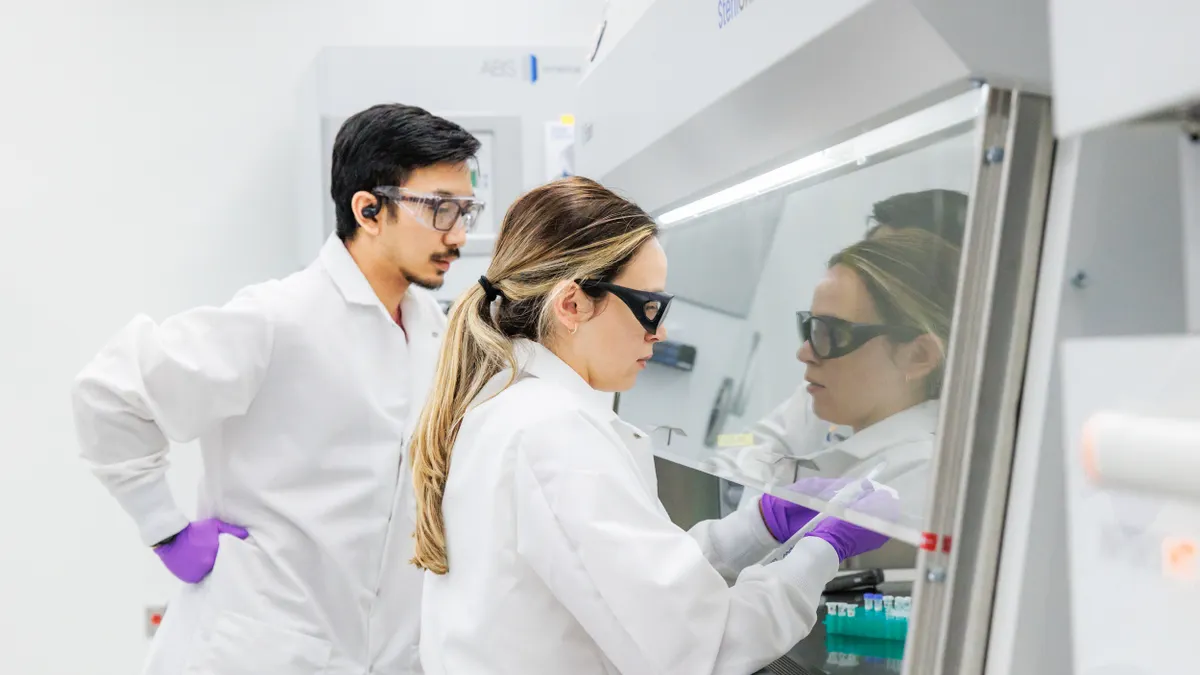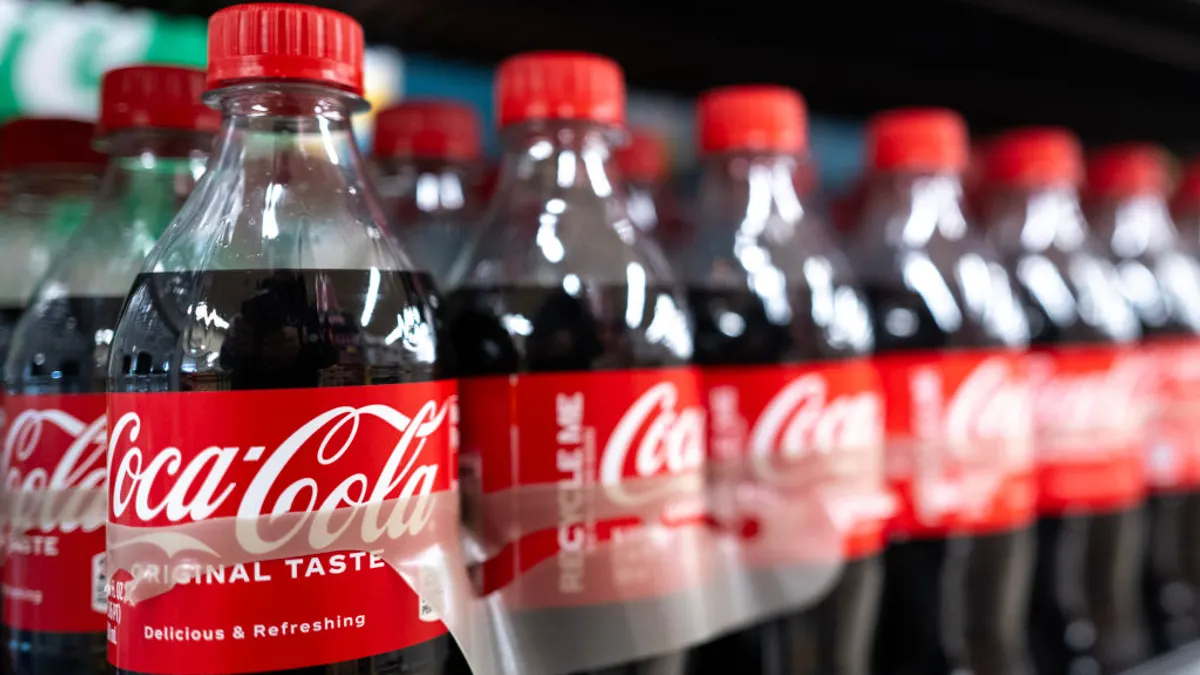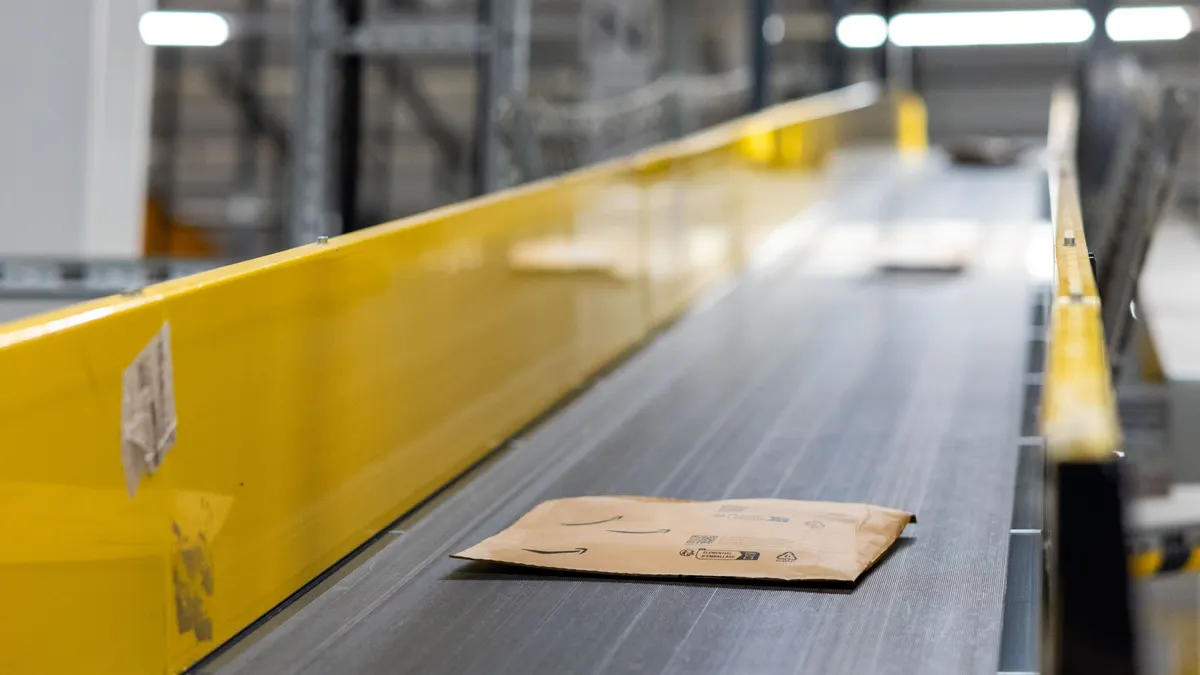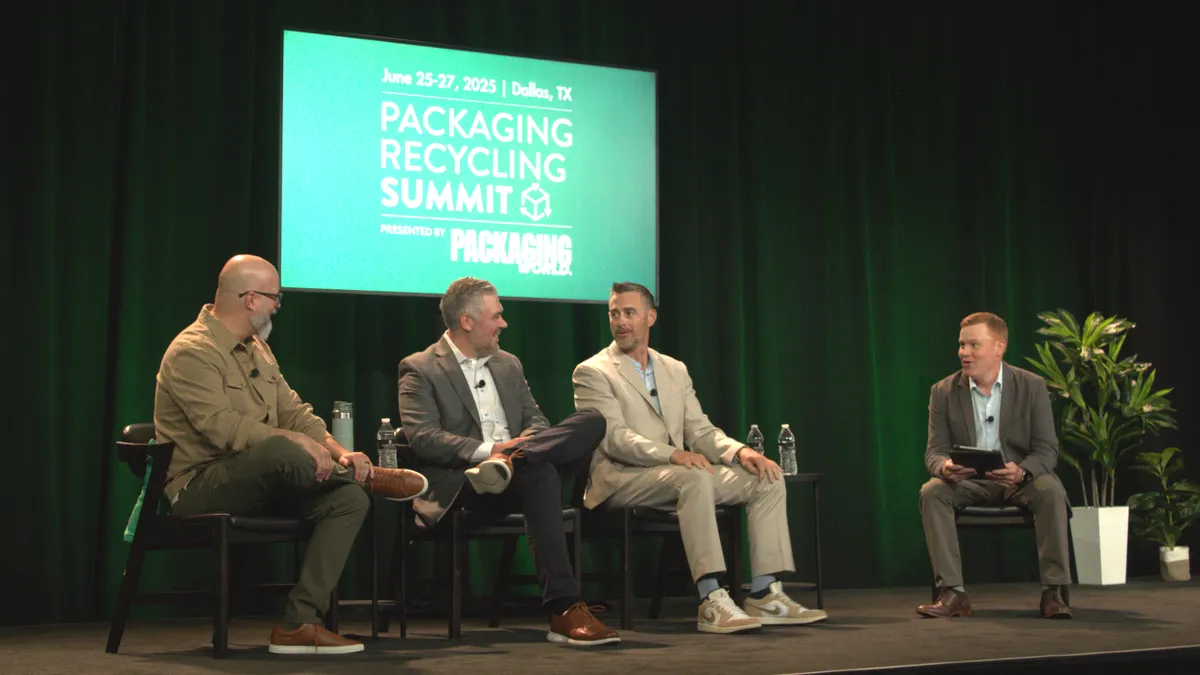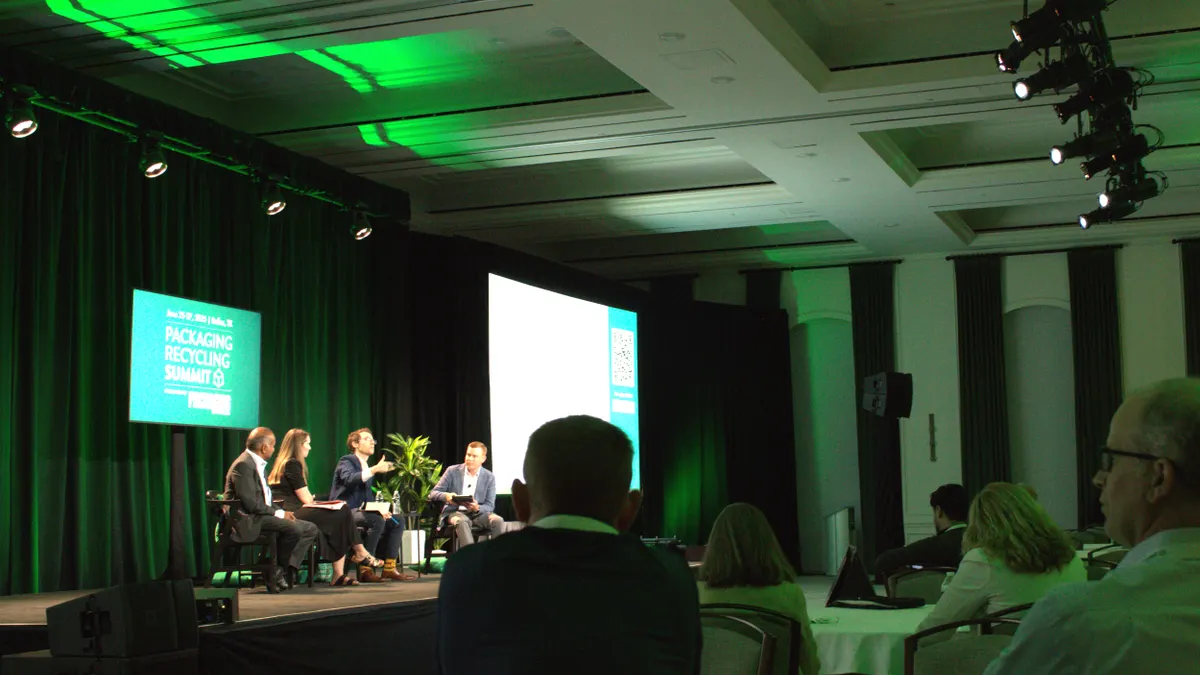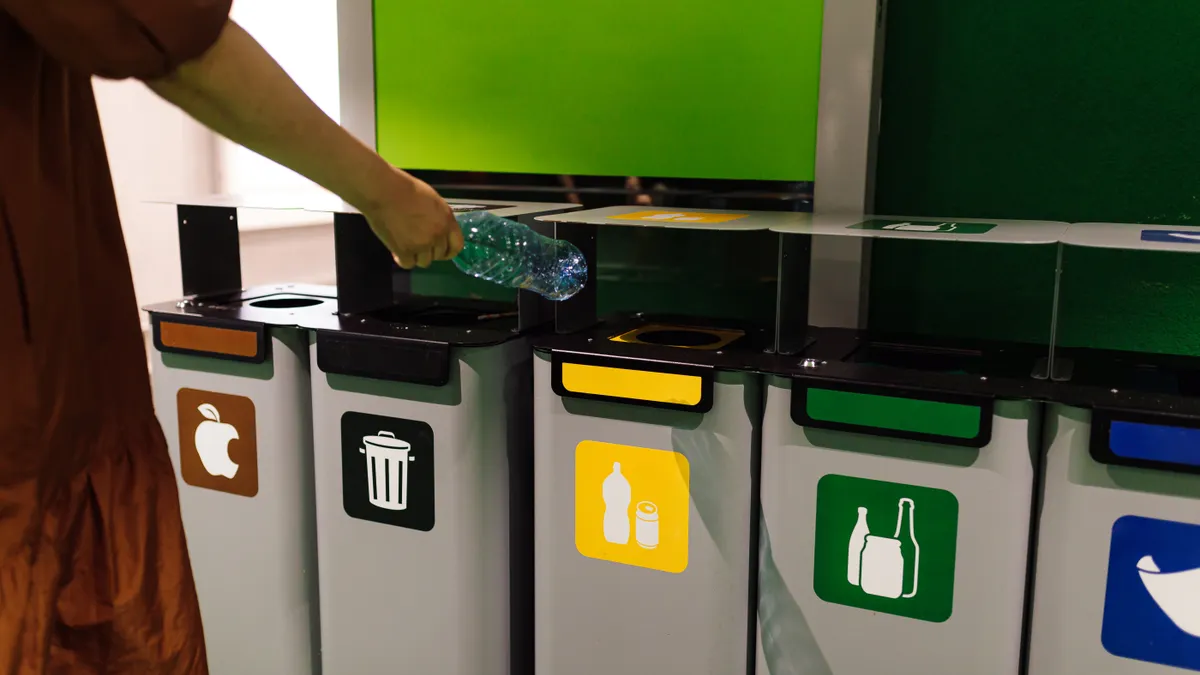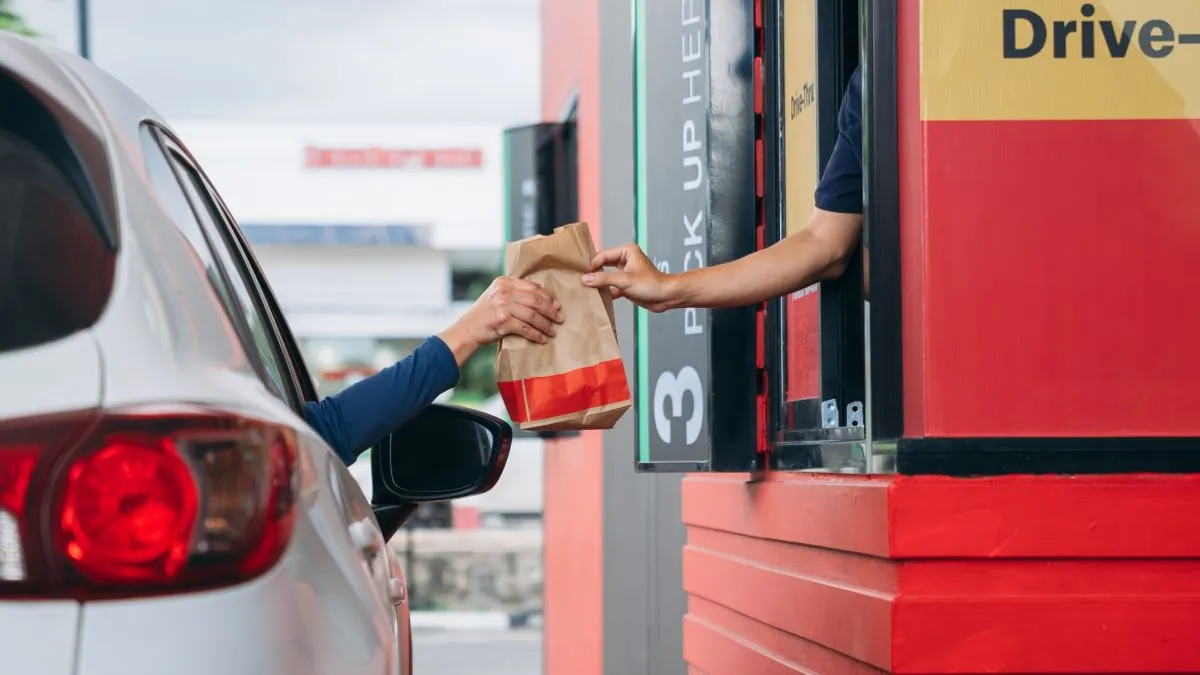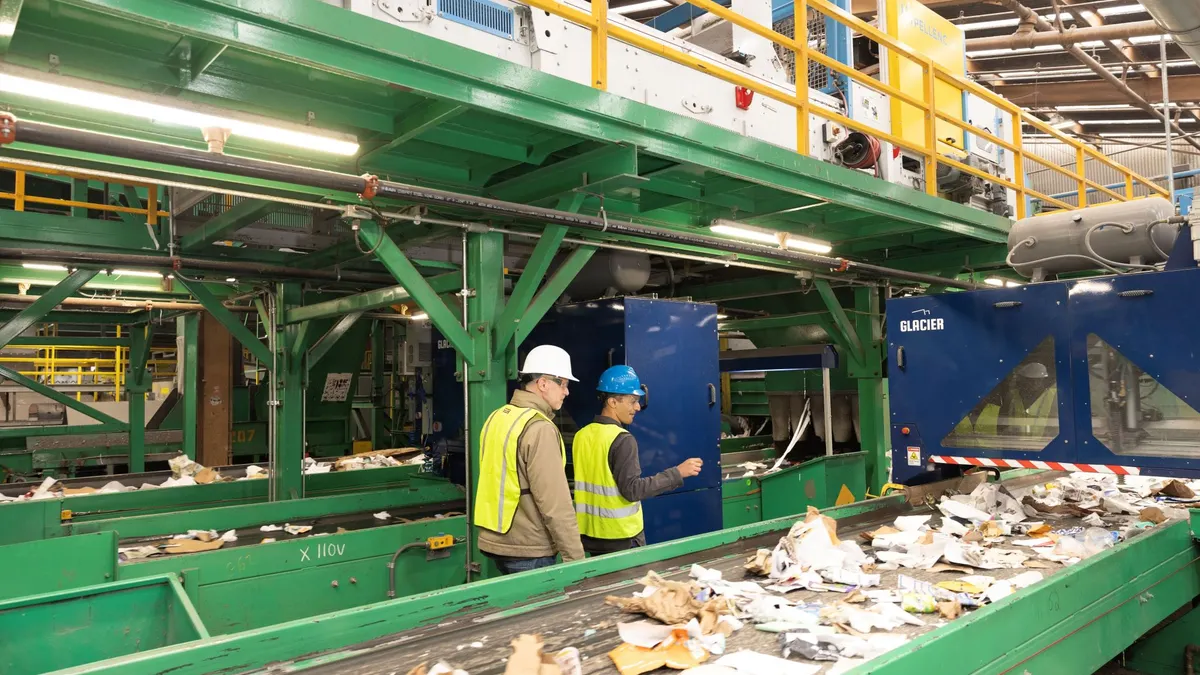Organizations working to scale reuse in 2025 have their sights set on more contracts with large-scale event venues, as well as the opportunity to transform school lunches.
This comes as reusables play a miniscule role in consumer-facing packaging. Companies involved in the Ellen MacArthur Foundation’s global commitment to reduce plastic use have just a 1.3% rate of reusables in their packaging portfolios in 2023.
Reuse leaders have detailed challenges with breaking through with reuse, including not being able to demonstrate reuse’s potential when it’s only implemented in the form of limited-run pilots. Securing big contracts is essential to scaling reuse, they say.
Reuse is stuck in a ‘chicken or the egg’ situation as advocates dream of economies of scale, said Crystal Dreisbach, CEO of Upstream, a nonprofit focused on the shift from single-use to reuse systems.
The fastest progress is happening with “very large-scale, high-volume examples of reuse systems” in the sports and entertainment industry, Dreisbach explained. Expect to see “exponential” growth in reuse in 2025 among at these types of venues, she said.
The volumes and closed-loop conditions at these venues can allow for building out washing capacity and other infrastructure that could then be leveraged by K-12 schools, grocery stores and restaurants in a community. Another benefit of working with event venues is that, in many cases, large companies operate multiple venues; these established networks can help with securing contracts and scaling faster, Dreisbach said.
Dreisbach highlighted the 2026 FIFA World Cup — taking place in cities across the U.S., Mexico and Canada — and the 2028 Olympics in Los Angeles as two major opportunities in North America. These sporting events could help normalize reuse for thousands of attendees, Dreisbach said.
“What better way to create benefit for the communities in which these events are held, and lasting economic opportunity, but to be the catalyst for the build-out of infrastructure for these cities to have reuse systems in place forever more?” Dreisbach said. “This is something the reuse movement is working very hard on. It's going to take a lot of money, and the perennial question is: Who benefits from the positive impacts, and who should pay? Whose responsibility is it for the upstream prevention of the downstream impacts?”
School lunches also “represent an enormous opportunity,” Dreisbach said, anticipating more coordinated efforts in 2025. “School children are a topic that everyone can get behind, regardless of what side of the aisle that you're on,” Dreisbach said. Some states may require changes to food codes to allow reusables.
One area of opportunity that didn’t make Upstream’s list for 2025 is restaurants. They represent an open network – “which has a whole lot of complexity,” Dreisbach said.
It seems to always come back to the issue of washing infrastructure.
“If you're a wash operation you’d have to contract separately with 100 businesses to even come close to the numbers, and not even reach the numbers, that contracting with one stadium would get you,” Dreisbach said. Training employees at restaurants is also time-intensive. “We'll get to restaurants, but it's not the first place to start.”
A stadium can effectively serve as an anchor client for a city; from there, infrastructure build-out could make it more affordable for restaurants, that typically don’t have as much capital, to participate in a reuse system.
Dreisbach also said that Upstream isn’t overly focused on the packaging itself at this point. Reusable packaging can have a greater environmental footprint than alternatives if it’s not properly recovered. “Reuse is a system, not the packaging,” she said. “Because if you don't have a system operating the way that it should with best practices … you will not get the packaging back.”
Investing in reusable containers in closed-loop settings like stadiums is a safer bet because they expect to have higher return rates. “There's only a couple ways to get out of a stadium. You know, you're not going to take your nacho boat home with you,” Dreisbach said.
Bold Reuse is a reuse operator that sets up and manages closed-loop reusable food ware systems; under its model, clients own the actual reusable food ware or packaging. The Portland, Oregon-based company says it tripled its revenue from 2023 to 2024, and, as another possible revenue stream, it aims to license its technology to other reuse operators or municipalities in a software-as-a-service model.
The company recently received $100,000 from the U.S. EPA to implement an inventory management system, intended to handle logistics of reusable packaging as it’s working its way through the system. According to a project description, the technology “is innovative in terms of architecture mapped to the needs of the reuse industry,” saying existing offerings don’t “consider the complexities of reverse logistics.”
Bold Reuse shares Upstream’s attitude on closed-loop venues such as sports stadiums, music venues, schools, corporate campuses and cafeterias. “That's where we are 100% focused on and finding pretty ready adoption,” said co-founder and CEO Jocelyn Quarrell.
The company has learned to adjust its messaging from targeting early adopters to meeting “early mainstream customers.” Quarrell said Bold Reuse is seeing some willingness among prospective customers to leapfrog past recyclable or compostable packaging into reusables.
The company now operates in cities across the U.S., buoyed by contracts with venue operators and working with teams like the National Women’s Soccer League’s Kansas City Current, Major League Baseball’s Arizona Diamondbacks and the National Football League’s Chicago Bears. All of its warehouses operate profitably, said Quarrell. Bold Reuse doesn’t expand into a new city without a contract first.
As for open-loop potential, “we're really not actively looking for opportunities” there at this time, “because it's just much more complex, and the economics of those types of models are not as clear to us.”
Still, others are trying to tackle those more unwieldy open environments.
The Petaluma Reusable Cup Project was an initiative of Closed Loop Partners’ NextGen Consortium late last year. It worked with more than 30 participating restaurants and coffee chains in the small California city to make reusable cups the default. Dozens of cup collection points were placed across the city. Berry Global was a cup provider for the project.
The limited-run project began in August and wrapped up in November. In 12 weeks, reusable cups prevented the disposal of more than 220,000 single-use cups, according to the project’s website.
Carolina Lobel, senior director at Closed Loop Partners’ Center for the Circular Economy, said that since November, project organizers have been gathering sales and cup return data from participating businesses, as well as information about how many cups ended up at the local MRF. Lobel said a report will be shared next month with more detailed results and takeaways from the program. Closed Loop Partners and its collaborators are interested in launching these citywide activations in other communities in the future.
Lobel said one key hurdle, and success, in Petaluma was making the reuse system truly inclusive and accessible – a harder task when not in a closed setting like a stadium. “We had this big challenge of reaching an entire community, and we decided to do that by automatically opting [consumers] into this system – making them participate even when they didn't ask to participate,” Lobel said.
A positive takeaway was the speed at which residents bought in to the system, Lobel said.
“One thing that we learned in Petaluma is there's this common perception in reuse that behavior change is hard and slow and that it will take decades,” Lobel said. But Petaluma showed encouraging signs in three months; there was understanding and adoption within days of launching, she said: “our vision of a world where reuse is the norm is within reach and it’s possible.”
Important characteristics in Petaluma included “incredible support” from city government, local NGOs and civic groups. The city also has lots of businesses in a concentrated area. Lobel said collaborators are “very focused on moving from experimentation to scale with reuse” and identifying markets where it’s both environmentally and financially sustainable.
“We'll continue to identify communities where we can have an impact, where we have a concentration of businesses willing to engage and collaborate and participate in that together, and where we can leverage public-private partnerships to make reuse part of the community culture,” Lobel said.



